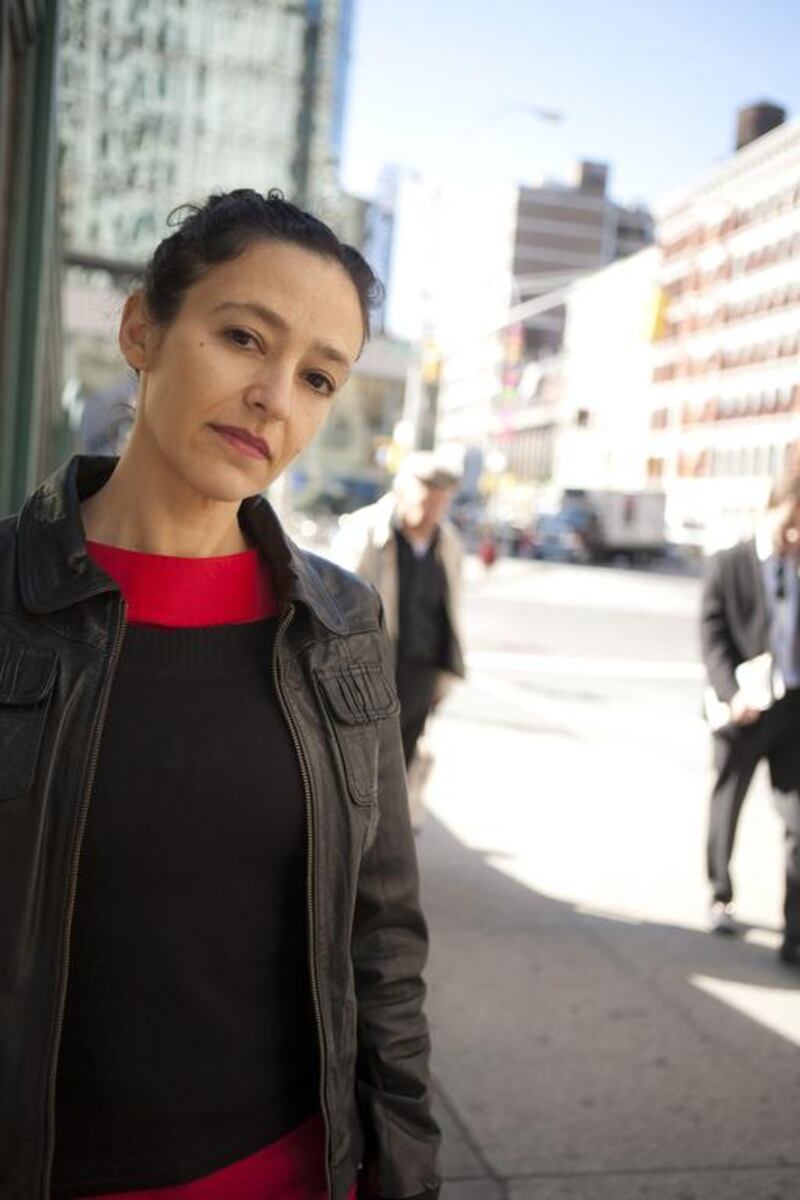"I'm only an apprentice blind woman and I have very little ambition in the trade," says Lina, heroine of Lina Meruane's autobiographical novel, Seeing Red, who, like the author, undergoes a slow, and occasionally dramatic, descent into blindness, which might be permanent.
Meruane, already well-known in Chile, and across Spanish-speaking Latin America, is here translated into English for the first time.
There’s a fierce exhilaration to the details of Meruane’s degeneration. She witnesses “blood spilling out inside my eye. The most beautiful blood I have ever seen.”
As her blindness progresses, all senses are rejigged. Hearing sharpens in response to “the whisper of a rotten gutter”, the world becomes full with: “the scent of candied peanuts, and caramel apples, of pretzels, bagels straight out of the oven”.
What takes the place of sight? Not only physical senses. Meruane learns the interdependency of bodies. She encounters generosity, meanness and disabling pity on the streets of New York where she has moved to from Chile to begin doctoral work. And in private, via the delicate balance of her relationship with her boyfriend Ignacio – not to mention the strain she fears to place on the “dominoes” of her family, who “would fall in a line one after the other” under the weight of her ailment.
Co-dependent, she begins, literally, to see the world through other people’s eyes “to judge by the memory of [Ignacio’s] eyes, which are also mine”. Ignacio becomes a “straightjacket” as he forces Lina to accept a wheelchair. Aware of her increasing reliance on other things and other people, her writing is characterised by a playful, and sometimes alarming, metonymic synaesthesia between people and their objects: the straight faces of repressed “gringos” are “ironed”; wheelchairs, put away, are “disabled”; “The house,” suddenly full of unseen obstacles, “was alive”.
Meruane is both alienated from her unreliable body, which becomes more like an object, prompting a variety of ecstatic metaphors, but she also comes to inhabit it more completely via its new vulnerability.
Meruane’s (and all of our) interdependence is highlighted by the processes by which she is treated: as she fumbles for her medical insurance, her condition becomes political. She has to fight to claim back ownership of her own illness: it’s “my operation”, she insists, “mine and maybe a little bit yours”.
Losing her sight prompts questions of identity, both physical (“How was I to know what kind of face I had, when I’d misplaced my lips, and my mole.”) and at the point at which Meruane’s vision intersects with her cultural and family identity.
Before the onset of her blindness, she is asked. “So are you or aren’t you Lina Meruane?” and she replies, “Sometimes I am, I said, when my eyes let me; lately, I’m less and less her and I go back to Lucina. The extra syllable bled sometimes.”
Returning to Chile and the care of her family, she is forced to resume her role as a child – her new dependance echoed by the old. But this conversation also playfully hints at the intersection between fiction and autobiography in what is, after all, a novel.
“It was as if you were one-eyed too, you couldn’t understand what had happened,” she says of her boyfriend Ignacio, the night of the diabetic stroke that triggers her condition. At the time, he is unable to ask questions and she is unable to describe what has happened: to be unable to see is to be unable to speak.
Watching is often used as a metaphor for writing. A good writer, we’re told, “observes”, or has “vision”. “I see it all without seeing,” says Meruane, “I see it from the memory of having seen it.”
Like any writer. Seeing Red is, among other things, a book about writing, and the project of writing is one of re-seeing, or perhaps that is too narrow a metaphor. The book is scattered with figures of speech involving sight (apt English equivalents are found in Megan McDowell's subtle translation). "Better just to keep an eye on it," a doctor says, of Meruane's condition.
“Seeing Red” is, of course, a metaphor of anger, and the book erupts with the exuberance of Meruane’s horror and indignation. The book is told in a rush of paragraph-less short chapters, sometimes collapsing into broken sentences, ending “while I”, that echo the intransitiveness, the incompletion of Meruane’s state.
Intense, physical, flipping from sensual to gory, Seeing Red is a book about degeneration and offers an exhilarating "fresh eye", as the author puts it, on what it is to be alive.
Joanna Walsh is the author of Vertigo. She edits fiction at 3:AM magazine and runs @read_women.










